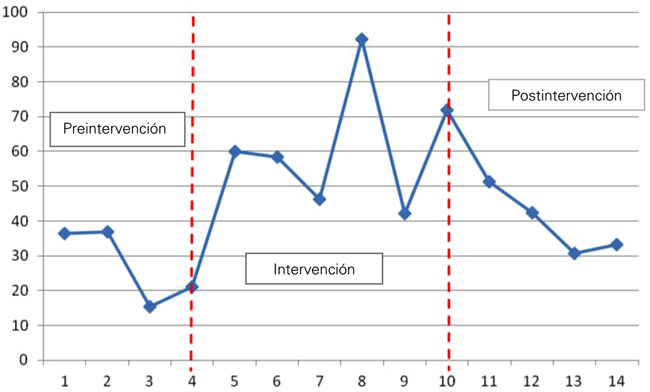A communication intervention in autism spectrum disorder by means of the programme ‘More than Words’. A case study
Introduction. The ‘More than Words’ programme aims to enable parents to take advantage of day-to-day situations as communication learning settings, through the use of instruction in responsive-type interaction strategies.
Aim. To describe the effects of this programme on the communication skills of a child with autism spectrum disorder and on the language the parents use to address him.
Patients and methods. A three-phase design (pre-intervention, intervention and post-intervention) was employed, in which the responsive interactions of the parents and the child’s communicative acts were measured.
Results. The intervention can modify the parents’ communicative style, especially when the family receives guidance from a speech therapist. Nevertheless, the responsive nature of the parents’ communication tends to diminish when the intervention finishes. Conversely, the child’s communicative acts increase, with a medium-sized effect of the treatment.
Conclusions. The ‘More than Words’ programme can be a good starting point for parents to become familiar with strategies that foster communication with their children who have autism spectrum disorder.
Key words. Autism spectrum disorder. Communication. Early intervention. Responsive style. |




